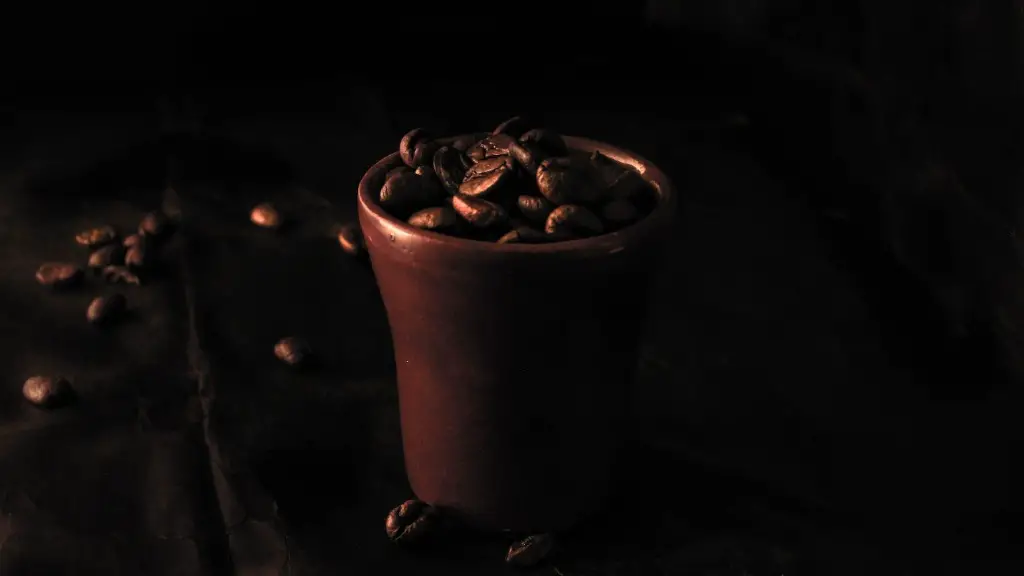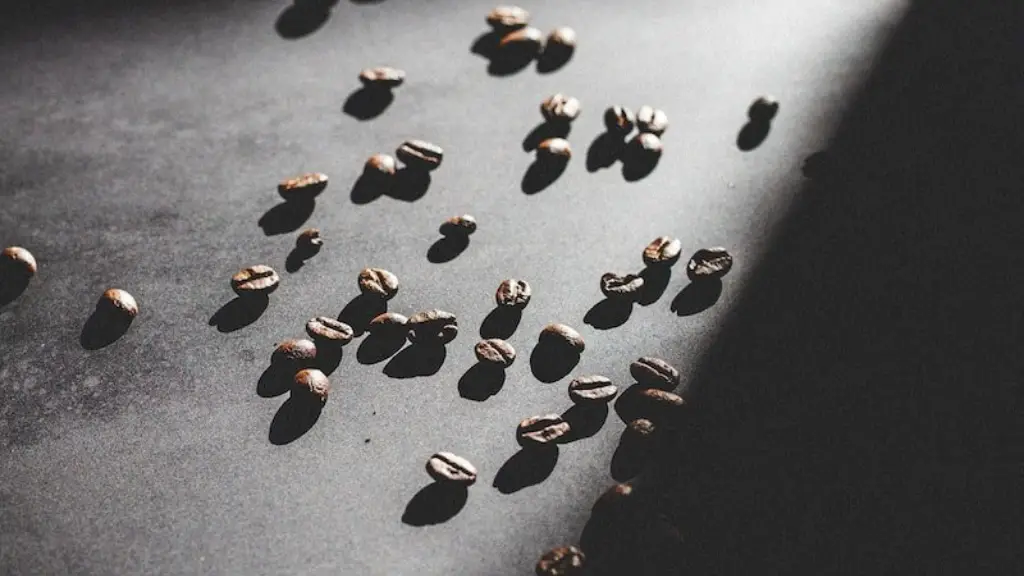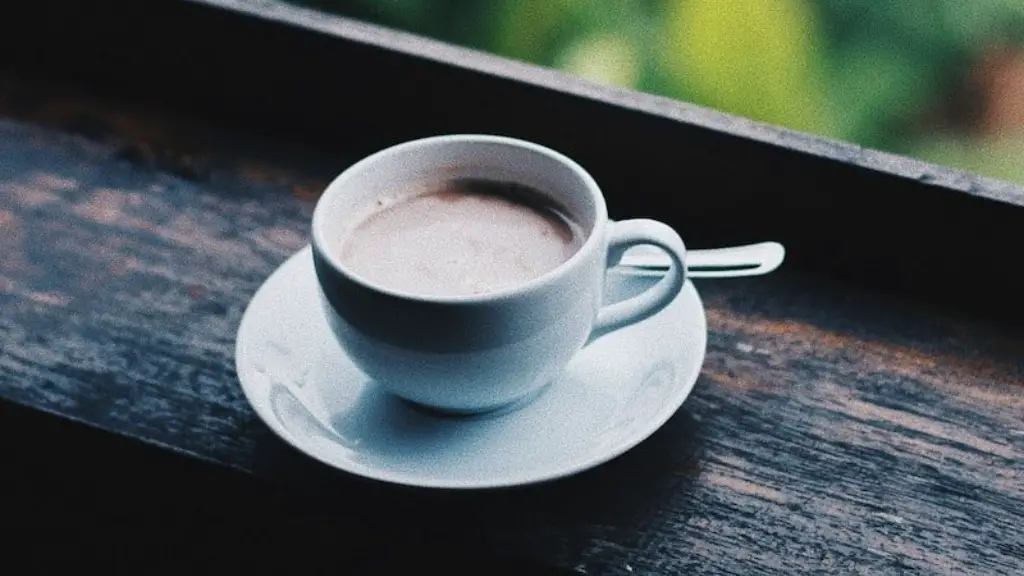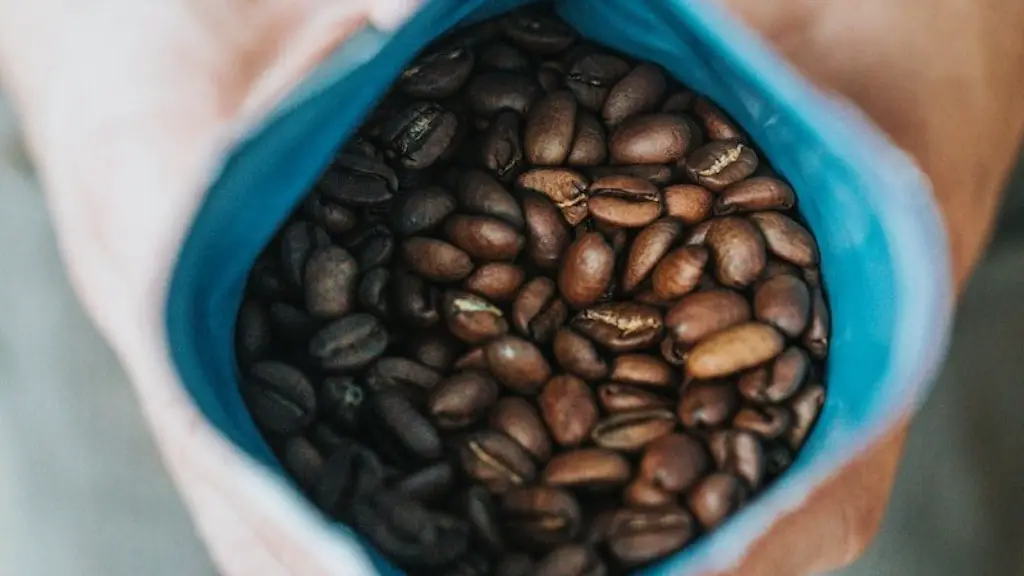It is no secret that coffee is one of the most popular beverages in the world. Recent research suggests that coffee consumption is linked to various health benefits, such as improved cognition, better physical performance and a lowered risk of some chronic diseases. However, with all these health benefits, it is possible to drink too much coffee and it can have a negative effect on your heart health. So, can drinking too much coffee really cause heart palpitations?
Generally speaking, heart palpitations may be caused by either physical or psychological triggers. Drinking too much coffee is one of those physical triggers and it is thought to increase heart rate and the risk of arrhythmia (irregular heartbeat). Excessive intake of caffeine can lead to symptoms such as a racing heart, chest flutter, lightheadedness and shortness of breath. It is also believed to activate the nervous system, resulting in increased levels of adrenaline.
To answer this question, it is important to look at the scientific evidence. According to a study conducted at Harvard Medical School, consuming more than two hundred milligrams of caffeine per day can increase the risk of palpitations by up to twenty-five percent. Another study showed that those who drink five or more cups of coffee per day are more likely to experience palpitations and irregular heartbeats than those who drink fewer cups. However, keep in mind that the same effects may not be seen in all individuals. It all depends on the person’s own tolerance to caffeine.
Dr. Amitava Banerjee, an expert in cardiology from the National Heart and Vascular Institute in India, states that,“There is no one-size-fits-all rule. Everyone responds differently to caffeine, so it’s important to assess your own tolerance. Moderate coffee intake – up to four cups per day – is usually unlikely to cause any problems. However, if you’re prone to any heart problems or have a fast resting heart rate, it’s best to avoid excessive caffeine intake or switch to decaffeinated drinks.”
It is also important to note that those who take certain medications, such as some antidepressants and asthma medications, are likely to have a heightened sensitivity to the effects of caffeine. Pregnant women and those with anxiety disorders or high blood pressure should also approach caffeinated drinks with caution. It is also worth mentioning that energy drinks are a major source of caffeine and may also be a major contributor to palpitations.
In conclusion, drinking too much coffee can cause heart palpitations in certain individuals, depending on their sensitivity to caffeine. It is important to be aware of the potential risks and to monitor your own caffeine intake. It is also wise to follow the advice of your doctor, especially if you are taking any kind of medication.
Caffeine Sensitivity and Risk Factors
Apart from drinking too much coffee, there are several other factors that can increase one’s risk of palpitations. Caffeine sensitivity is one such factor. Caffeine sensitivity refers to the degree to which an individual can tolerate the effects of the stimulant. Some people may be more sensitive to coffee and energy drinks than others. Those with coffee sensitivities are more likely to experience palpitations when drinking excessive amounts of coffee.
In addition, certain medical conditions may predispose an individual to heart palpitations when consuming too much caffeine. People with underlying heart conditions, such as arrhythmias, are advised to limit their caffeine intake. Those with anxiety disorders, high blood pressure and other related conditions should also take precautions when drinking coffee. Furthermore, some medications may increase the risk of caffeine-induced palpitations, such as some psychotropic drugs and asthma medications.
It is important to note that the recommended maximum daily intake of caffeine for adults is 400 mg. Studies suggest that consuming more than this amount in one day can cause palpitations and other cardiovascular symptoms in those with caffeine sensitivities. High doses of caffeine can also lead to dehydration and increased stress levels, which can further increase the risk of symptoms.
Other Reasons for Palpitations
It is important to remember that palpitations may be caused by a variety of factors, not just caffeine. Common causes of palpitations include excessive alcohol intake, smoking and using recreational drugs, physical exertion, eating meals high in fat, anxiety and stress, and a lack of sleep. Palpitations can also be caused by the use of certain medications, such as those used to treat asthma, high blood pressure and depression.
If you regularly experience palpitations, it is important to speak to your doctor and have a full medical examination. Your doctor may order tests, such as an electrocardiogram (ECG) or a holter monitor, in order to determine if there is any underlying heart condition causing the palpitations. Depending on the results, your doctor may suggest lifestyle changes, such as reducing your caffeine intake, quitting smoking or reducing stress.
If the palpitations are severe or persistent, your doctor may prescribe medication to help control them. These include beta blockers, calcium channel blockers and certain antianxiety medications. It is important to note that these medications may interact with the caffeine in your system, so it is essential to discuss this with your doctor before taking any new medication.
Tips to Reduce Caffeine Intake
If you’re looking to reduce your caffeine intake and avoid palpitations, there are a few simple things you can do. Firstly, try to avoid energy drinks and opt for low-caffeine coffee or decaffeinated beverages instead. Additionally, you could try switching to herbal teas or drinking more water throughout the day. Alternatively, if you are an avid coffee drinker, you could try making small reductions in your daily caffeine intake. Reducing your intake by just one cup a day can make a difference.
It is also important to be aware of alternate sources of caffeine that may be hiding in your diet. Caffeine can be found in varying levels in dark chocolate, certain cold drinks and certain over-the-counter painkillers. If you are unsure about how much caffeine you’re consuming, it is best to speak to your doctor and pay attention to food labels.
When it comes to reducing your caffeine intake, it is important to remember that moderation is key. Don’t try to cut out caffeine altogether as this can often lead to withdrawal symptoms, such as headaches and irritability. Instead, make steady, gradual reductions in your caffeine intake over a period of time and listen to your body. This way, you can reduce the risk of experiencing any unpleasant side effects.
Caffeine Alternatives
Apart from reducing your caffeine intake, you can also try out some caffeine alternatives. These include natural herbal teas, decaffeinated coffee, water with a splash of citrus juice or even herbal supplements. It is also important to make sure you are getting enough sleep and engaging in physical activity, as this will help to boost energy levels and prevent fatigue.
Ginseng and matcha tea are considered natural alternatives to coffee. Ginseng is an adaptogen herb that helps the body adapt to stress and can provide energy without the crash. Matcha tea is made from the finely ground leaves of the Camellia Sinensis plant, and contains a high concentration of antioxidants and vitamins. In addition, it is relatively low in caffeine, meaning it won’t give you the same energy surge associated with coffee.
For those who are looking for an energy boost, there are also some over-the-counter supplements available. These are usually made from natural ingredients, such as guarana and yerba mate, both of which contain caffeine. Or, if you prefer, you can even try out some caffeine-free supplements, such as choline, magnesium or B vitamins.
Closing Thoughts on Drinking Too Much Coffee
Drinking too much coffee can cause heart palpitations in certain individuals, especially those with caffeine sensitivities. It is important to be aware of the potential risks and to limit your caffeine intake. However, bear in mind that excessive coffee drinking is only one possible cause of palpitations and that the condition may have a variety of other causes, such as stress, anxiety or underlying medical conditions.
It is also important to take into account lifestyle factors, such as stress, physical exertion, smoking, alcohol and a lack of sleep, as these can all contribute to palpitations. If you experience persistent palpitations, it is best to speak to your doctor and have a full medical check-up. In addition, you may also find it beneficial to try out some natural caffeine alternatives, such as herbal teas, decaffeinated coffee and over-the-counter supplements.





